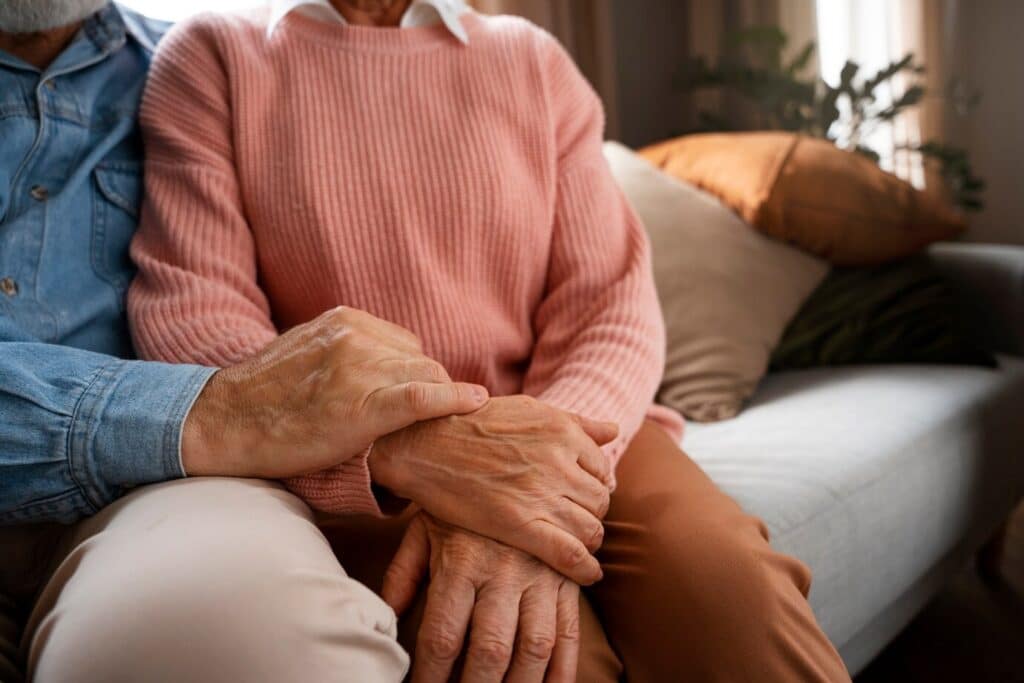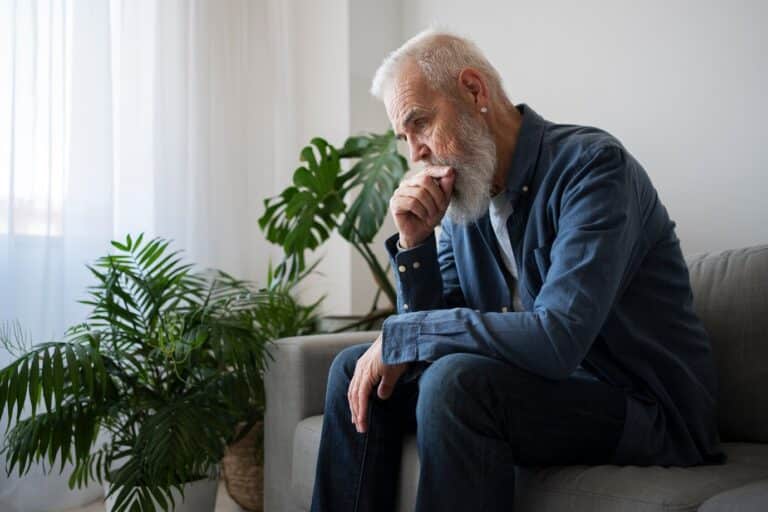Losing a loved one is one of life’s most challenging experiences, especially for seniors who may be navigating through their golden years. At Oceanview Senior Living in Newport, OR, we understand seniors’ unique needs and struggles when dealing with grief. This guide delves into practical strategies and techniques for managing grief, providing valuable insights and support to help seniors cope with loss and navigate this difficult time.
Understanding Grief: A Natural Response to Loss
Grief is a natural emotional response to loss, whether it’s the passing of a spouse, family member, friend, or even a beloved pet. Seniors need to understand that grief is a normal part of the human experience and that there is no right or wrong way to grieve. Each individual may experience grief differently, and it’s crucial to allow oneself to feel and process emotions fully.
Navigating the Stages of Grief
The grieving process typically consists of several stages, including denial, anger, bargaining, depression, and acceptance, as outlined by psychiatrist Elisabeth Kübler-Ross. Seniors may find themselves moving back and forth between these stages, and it’s essential to recognize that grief is not a linear process. By acknowledging and understanding these stages, seniors can better navigate their emotions and progress toward healing.
Seeking Support: The Importance of Connection
During times of grief, seniors may feel isolated or alone. However, seeking support from friends, family members, or support groups can provide much-needed comfort and companionship. At Oceanview Senior Living, we encourage seniors to lean on their social network for emotional support and to participate in activities or programs that promote connection and community.

Seeking Support: The Importance of Connection
Self-Care Strategies for Coping with Grief
Taking care of oneself is essential when coping with grief. Seniors can benefit from self-care activities such as regular exercise, healthy eating, adequate rest, and engaging in hobbies or activities they enjoy. Mindfulness techniques, such as meditation or deep breathing exercises, can help seniors manage stress and promote emotional well-being.
Honoring Memories: Keeping the Legacy Alive
Honoring the memories of loved ones can be a healing and comforting experience for seniors. Whether through creating a memory book, planting a garden in their honor, or participating in rituals or traditions that hold significance, seniors can find solace in keeping the legacy of their loved ones alive. Finding meaningful ways to commemorate the lives of those who have passed can provide a sense of closure and comfort.
Finding Meaning and Purpose in Managing Grief
During grief, seniors may struggle to find meaning or purpose. Engaging in activities that bring joy and fulfillment, volunteering, or pursuing spiritual practices can help seniors find meaning and purpose beyond their grief. By focusing on the present moment and embracing life’s possibilities, seniors can begin to heal and move forward with hope.
Embracing Change and Adaptation
One of the challenges of grief, particularly for seniors, is adapting to the changes that come with loss. Whether it’s adjusting to life without a spouse or redefining one’s identity after the passing of a loved one, navigating these changes can be daunting. However, embracing change as a natural part of life and being open to new experiences can help seniors find resilience and strength in adversity.
The Role of Professional Support
In some cases, grief may become overwhelming, and seniors may benefit from the support of a professional counselor or therapist. These professionals can provide a safe space for seniors to explore their emotions, develop coping strategies, and gain perspective on their grief journey. Seeking professional support is not a sign of weakness but a proactive step toward healing and well-being.
Cultural and Spiritual Perspectives on Grief
Cultural and spiritual beliefs play a significant role in how individuals experience and cope with grief. Seniors may find solace in their faith or cultural practices, finding comfort in rituals, prayers, or ceremonies that honor the deceased. Seniors must lean into their cultural or spiritual beliefs during grief, as these can provide a sense of meaning, connection, and support.
Creating a Supportive Environment
Creating a supportive environment is crucial for seniors coping with grief. Family members, caregivers, and staff at senior living communities like Oceanview Senior Living can play a vital role in providing emotional support and assistance with daily tasks. Ensuring seniors have access to resources, such as grief counseling or support groups, can also help them feel supported and cared for during this challenging time.
Holding onto Hope
While grief may sometimes feel overwhelming, seniors need to hold onto hope for the future. Finding moments of joy, gratitude, and connection can help seniors see beyond their grief and envision a brighter tomorrow. By nurturing hope and resilience, seniors can continue to live fulfilling lives, honoring the memories of their loved ones while embracing new experiences and opportunities.
Moving Forward Together
Managing grief as a senior is a profoundly personal journey, but it does not have to be traveled alone. By understanding the stages of grief, seeking support from others, practicing self-care, honoring memories, finding meaning and purpose, embracing change, and holding onto hope, seniors can navigate through grief with resilience and strength. At Oceanview Senior Living, we’re dedicated to providing compassionate care and support to seniors during their grief journey. If you or a loved one needs assistance managing grief, please get in touch with us at 541-574-0550. Remember, you’re not alone, and brighter days are ahead.


